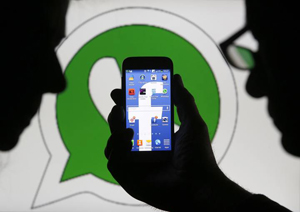New Delhi, Sep 24: WhatsApp, the instant messaging software, was today directed by the Delhi High Court to delete the information and data of those users who would stop using the app before September 25, when its new privacy policy comes into effect.
 A bench of Chief Justice G Rohini and Justice Sangita Dhingra Sehgal also asked WhatsApp not to share with Facebook or other group companies the information and details of users who would opt out of the app, as well as the existing users upto September 25 to protect their interest.
A bench of Chief Justice G Rohini and Justice Sangita Dhingra Sehgal also asked WhatsApp not to share with Facebook or other group companies the information and details of users who would opt out of the app, as well as the existing users upto September 25 to protect their interest.
As per new privacy policy of WhatsApp, user information would be shared with Facebook.
The court issued the directions as WhatsApp, while launching its app initially, had provided complete security and protection of privacy as also because the issue relating to an individual's right of privacy is yet to be decided by the Supreme Court.
"Having regard to the complete security and protection of privacy provided by Respondent 2 (WhatsApp) initially while launching Whatsapp and keeping in view that the issue relating to the existence of an individual's right of privacy as a distinct basis of a cause of action is yet to be decided by a larger bench of Supreme Court, we consider it appropriate to issue the following directions to protect interest of users of WhatsApp," the bench said.
The court directed the government and Telecom Regulatory Authority of India (TRAI) to "consider the issues regarding the functioning of the internet message applications like WhatsApp and take an appropriate decision at the earliest as to whether it is feasible to bring the same under the statutory regulatory framework."
Referring to the clauses of privacy policy of WhatsApp, the court said users cannot contend that the company shall be compelled to continue the same terms of service as was there at the time of launching of the platform. Under the earlier privacy policy, there was complete protection of user privacy.
"We are, therefore, of the view that it is always open to the existing users of WhatsApp who do not want their information to be shared with Facebook, to opt for deletion of their account," the court said.
The directions and observations came as the court disposed of a PIL by Karmanya Singh Sareen and Shreya Sethi who had challenged its new privacy policy.
The petitioners had alleged that the new privacy policy violated fundamental rights of users by allowing confidential information to be shared with Facebook.
WhatsApp had earlier informed the court that when a user account was deleted, the information of that person was no longer retained on its servers.





Comments
Add new comment